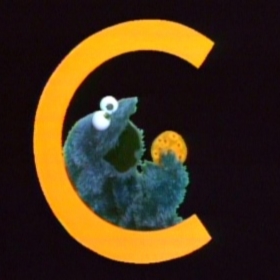Geta, kunna, mega: How to Say "can"

What is the difference between geta, kunna, and mega? They can all translate as can, so it's little wonder this trio causes some confusion. Let's clear this up!
Rule of Thumb
Basically, it works like this:

Geta > Can (Be Able To)
Geta is the quintessential Icelandic translation of can. It means can in the sense of being able to do something.
- Óli er svo vitlaus að hann getur ekki tuggið tyggjó og labbað á sama tíma > Óli is so dumb he can’t chew gum and walk at the same time.
- Geturðu unnið á laugardaginn? > Can you work on Saturday?
- Já, ég get það alveg, en ég vil það ekki > Yeah, I can, but I don’t want to.
- Íslenska getur verið svolítið erfið stundum en þú getur þetta! > Icelandic can be a little difficult sometimes, but you can do it!
In case you’re wondering about the verb form that follows geta (tuggið, unnið, and verið in the above examples), wonder no more: it’s the supine, which you can always find on BIN.
Kunna > Can (Have the Skill or Knowledge To)
Kunna means can in the sense of having the skill to do something or having the knowledge to do it. It can also frequently translate as know, in the sense of knowing how to do something (which is very similar to having the skill to do something, isn’t it?).
- Ef þú kannt á Excel opnar það margar dyr > If you can (know how to) use Excel it opens many doors.
- Kanntu japönsku? > Can you (do you know how to) speak Japanese?
- Önnur hver manneskja á Íslandi kann að spila á hljóðfæri > Every other person in Iceland can (knows how to) play an instrument.
Kunna vs. geta
Learners frequently confuse kunna and geta, so let’s take a closer look at that difference.
Think about playing the guitar: it takes years of practice to attain mastery of it, and we say you can play the guitar because you have the requisite skill to play it. If you break a finger or two (maybe you got into trouble with the Guitar Mafia or something) you don’t lose your skill or knowledge; only your ability to play.
- Ég kann alveg á gítar. Ég get bara ekki spilað í brúðkaupinu ykkar því gítarmafían braut á mér báða þumalfingurnar > I can (know how to) play guitar. I just can’t (am not able to) play at your wedding because the Guitar Mafia broke both my thumbs.
- Óli kann alveg að tyggja tyggjó, hann getur bara ekki gert bæði í einu, tuggið og gengið > Óli can (knows how to) chew gum; he just can’t (isn’t able to) do both at once, chew and walk.
Mega > Can (Have Permission To, Be Allowed To)
Did you ever ask your English teacher if you could go to the bathroom, only to have them snidely ask you back “I don’t know – can you?” Man, pedants suck. You’d think an English teacher would be aware that can has been used in the deontic permission-sense since the late 1800s. That’s the kind of thing elementary school English teachers know, right?
If you tried that in Icelandic, the snarky teacher would actually be correct. Mega means can in the sense of having permission to do something, may.
- Má ég fara á klósettið? > Can (may) I go to the bathroom?
- Get ég farið á klósettið eftir nýrnasteinaaðgerðina, eða fæ ég þvaglegg? > Will I be able to go to the bathroom after the kidney stone operation, or do I get a catheter?
- Má ég fá pennann þinn lánaðan? > Can (may) I borrow your pen?
- Það má ekki skilja út undan > You can’t (aren’t allowed to) leave anybody out.
Summary
Geta is the quintessential translation for can, and means to be able to.
Kunna translates as can in the sense of having the skill or knowledge to.
Mega translates as may or can in the sense of having permission to.

Dós > a Can (Like, the Metal Kind)
As a side note, the noun can translates as dós. That’s not really all that relevant, but it’s good to know!
Related reading
If you found this interesting, you might also be interested in these articles.




